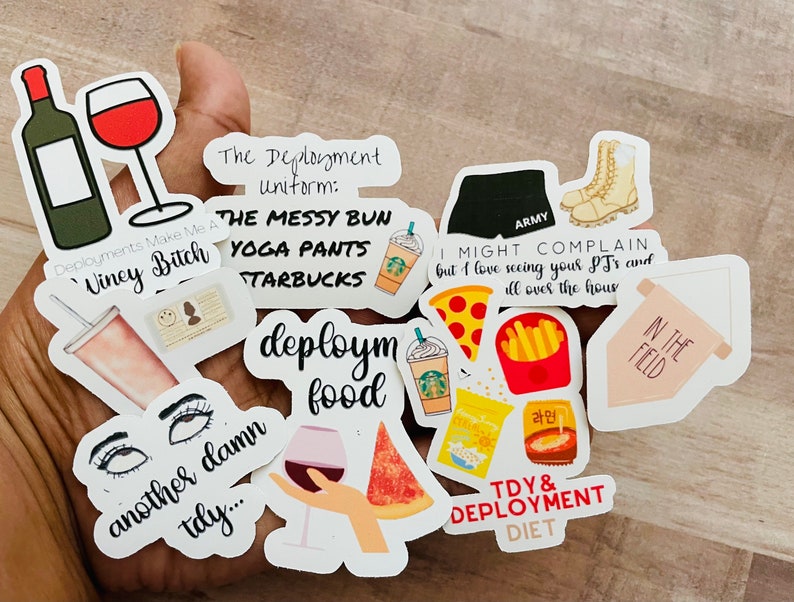*This section of http://www.ArmyWife101.com contains a blog discussing products and services for which I have received promotional consideration from A&E Television Networks, LLC (“AETN”) and/or AETN’s third-party advertisers. Unless otherwise expressly indicated, the opinions that you read on this section of http://www.ArmyWife101.com are those of this bloggers and/or the advertisers that commissioned or paid the blogger.

When parents come to me with questions about how to monitor their kid’s technology, it’s almost always after they’ve discovered something – a questionable photo on Instagram, a conversation with a stranger, usage when they should have been doing their homework. No matter how conscious and proactive parents are about setting limits in other areas, often they don’t create boundaries around technology until a boundary has already been crossed. And no wonder: Many say they simply don’t know where to begin. If they ban chatting on one device, they think, their kids will find a way to do it on another. Others parents say they didn’t realize how much time their kids actually spent staring at screens.
Believe it or not, according to recent studies, kids ages 8 to 18 spend more than seven and a half hours a day on various devices, often while multitasking. But while too much technology use is associated with lower grades and shortened attention spans, it also creates wonderful opportunities for parents and kids alike that none of us would want to give up. So here are a few ways to start thinking about how technology can coexist with kids in a healthy way.
Establish your policy up front. Earlier this year, when a mom named Jannel Burley Hoffman gave her 13-year-old son his first iPhone, it came not just with a data plan, but with a contract. Among the points: She would have his password; if she or her husband called, her son was always to pick up; there would be no porn viewing or sending or receiving inappropriate photos; he would have access to his phone during certain hours only; if he accidentally lost or broke his phone, he would be responsible for its replacement cost. Clarifying rules early on is a win-win for everyone. Kids learn that with freedom comes responsibility, and parents can feel reassured that while kids will make mistakes, they don’t have to come up with a consequence (often an overreaction) on the fly. It’s all in the contract.
Make manners matter. Because we parents were born before Facebook existed, we learned our manners offline. If we did something rude, we apologized, and our bad judgment didn’t live in cyberspace for eternity. For this reason, kids need to know that if they wouldn’t say something offline to a person’s face, they shouldn’t text, post or e-mail that comment, either. Likewise, if they wouldn’t cut off a person sitting across the table from them mid-sentence, they shouldn’t start texting somebody else when that real live person they’re hanging out with is mid-sentence. It may seem obvious to us, but many kids need a reminder that while technology is cool, human beings – with feelings – are the ones who are using it.
Don’t give in to peer pressure…from your kids! Even if you set limits, inevitably your child will try to get you to change your mind with, “But everyone else my age has [fill in the blank]!” If you feel your kid isn’t ready for something – a Facebook account, an iPhone – listen to your gut. Yes, they may be using it from the safety of their bedroom or backpack, but once they’re online, they’re, in essence, able to interact with the entire world. Some kids are inherently less impulsive than others; some self-regulate at earlier ages than others. Your kids will internalize the limits you set, so that by gradually increasing their freedom, you’re giving them the opportunity to show you that they can handle the next level of responsibility. Just as you wouldn’t give your teenager the keys to the car if you didn’t think she could go to a party and not drink before driving, you wouldn’t give her access to a type of technology you didn’t feel confident she could be safe with. Letting your kids show you they’re ready gives you peace of mind, and them the confidence of having earned your trust through their actions.
Be in this together. Because technology is ever-changing, and so are our kids, it’s important for them to feel that while you set the rules, communication is always open. If you notice a distinct change in your child’s behavior and friendships, and you check to see if cyber-bullying is occurring, you’re being a helpful parent, not an intrusive spy. If you set a rule but it’s not in line with what the technology actually does, listen to your child’s explanation, research it, and if you need to adjust the rule, then do so. If you find your child searching for something above his age level on the Internet and you want to give him more accurate information, start a conversation about it. Yes, kids can and should have their spheres of privacy. But they need to know that the Internet is a communal space, one that parents and kids are in together.

Visit http://www.cox.com/takecharge for more tips and information.
Giveaway
(1) Winner will receive a $50 Gift card. Simply tell us one internet safety tip that you and your family members practice.
18+ years of age to enter. Contest ends July 5, 2013 at 11:59 EST.
Please leave method of contact so that you may be notified if you are the winner.
Comments
Powered by Facebook Comments




My kids are still little (4 years & 10 months), but I’m the oldest of 13. I have younger siblings that are still teenagers. My sister is 12 and she is not allowed to have a Facebook account and cannot go on the internet at all without one of my parents sitting beside her.
ALWAYS keep the computer in a central location where it is easy to monitor the sites kids are visiting. I was a very troublesome teen and got into a lot of unsavory things because the computer was in my room. That will never be the case with my kids – the computer will always be in a family setting for easy monitoring.
In our house, we have strict parental controls through our wireless routers. However, we also have candid conversation with our oldest (who has more access then the younger kids) about what is not ok to view online which often opens at be doorway to talk about other stuff like drugs and such. For the younger kids, we use parental controls on their devices.
Let the internet be age appropriate.
We have installed the blocks on our son’s television and gaming system so that he can’t access or be accessed by other gamers.
I have parental controls set on the devices my boys use.
Hmm I couldve sworn I commented on here. Oh well :P Anyway, when our daughter is old enough to use technology, I will definitely put parental locks on it. She isnt going to have access to technology in private settings either. Growing up we didnt have tvs or computer in our bedrooms and she wont either. Privacy with things like that lead to things that shouldnt be seen period.
My son is only 4 but my husband and I have talked and decided that we will have all passwords to all social media accounts he has when he’s older and we won’t allow any social media accounts until he is old enough (15) to understand all the responsibilities and dangers of internet
My son is only three, and we limit how long he is on his iPod touch. I set the parental controls and even took access to certain apps off in the restrictions (ie: iTunes, apps, etc). We also limit how long he gets on the computer for Disney Jr and Nick jr. He is allowed to play ABC Mouse whenever he would like, since its very beneficial for him, but no more than four hours a day.
Our computer is in a central location that can be viewed by everyone. Also use password protection and parental controls based on ages on both computer and tv. And we limit their time per day depending on their age.
My son is 10 years old. He has his own laptop, with internet capabilities. How we insure his safety over the internet, is we put parental controls on everything for his laptop. Everything is password protected, he is not allowed to download anything without the parental password. Also we restricted the websites he is allowed to go to. There are a few educational game websites we let him visit, but everything else he can’t get into with out our password. We restricted things like Google, and you tube even, because we all know the power of search engines and what we can find just by plugging in one simple word into the Google search.
Our kids are too young for internet right now(5,3,8months), however, My husband and I have gotten them nabi jr’s that have internet access. We’ve put safe gaurds up for incidents that they would get online. One thing we will implement when the time comes for them to be on the webs is that if it sounds too good to be true,too fishy or to risky, it usually is. Our kids are special needs, so it’ll be harder to teach them internet safety. With that being said, we’ll also have safety blocks on our computers/ipods/whatever theyre using, to ensure they’ll be kept away from unnecissary dangers. Sounds naive yes, but all with good intentions.
My step kids are here for the summer. The boys are sleeping in a room with a TV so my husband and I take the remotes upstairs with us at night and they get them back after breakfast. We have also used parental controls to limit what can be watched on that TV. As far as Internet goes, the kids get to use my laptop and only at the kitchen table when an adult is in the room. They are limited to twenty minutes each of game playing. It probably isn’t the best solution, but it works for us for now.
my tip for Internet safety for our children is that we leave our home computer in the living room, although it is not very attractive we can always see what our children are doing on the Internet!
Amazing information!!
Our internet saftey is the computer is left in the living room. We have to approve websites before she allowed to view them.
Computer is located in a central area and parental controls, as well as passwords are utilized.
Don’t think I will be allowing any of my kids online. There’s a lot of crazy things going on online. They need to be focusing on school, sports etc.
My sister lets my niece just do whatever. When my niece stayed with me, she was only allowed on the computer for a limited time, and it was the computer in my living room (that sits in a way that I can see the monitor from the couch). I think parents should make kids earn the privilege of electronics access, and be all il in their business about what they do on them.
We have our computer in a central location and our children are only allowed to get on the internet with permission and are closely monitored when online. Anything they are on that has a password we know the password and have access to so we can monitor what is going on, on them
I monitor every site she goes to and she’s not allowed to click on any popups. We have passwords and safety software.
Always teach your children to never talk to strangers online or offline. You never know what a adult could talk a child into doing. That’s why it’s always best to set rules from the git-go!
We tell them not to give out any personal information to anyone. They are also not allowed to chat to anyone online. Parental controls are always in effect on every device in the house.
Site gratuit et français pour job de nuit